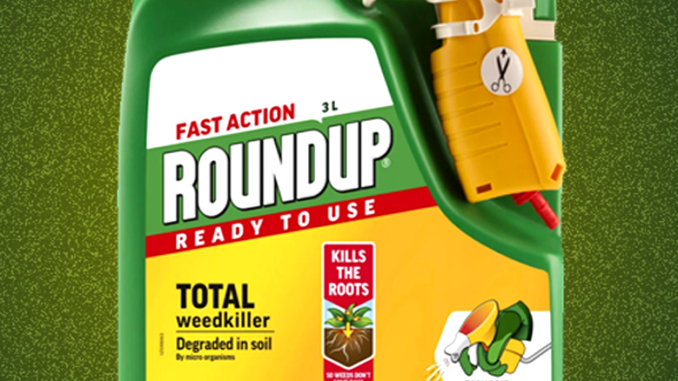
From the beginning it was like a story of David taking on Goliath.
On Friday, in a San Francisco court, with his head in his hands, plaintiff Dewayne Johnson, a former school groundskeeper in the San Francisco Bay Area school district who is dying from terminal cancer known as non-Hodgkin’s lymphoma, reacts to the judgement handed down in his favor against the agriculture giant Monsanto totaling $289,000,000, CNN reports.
David has won the battle, but not without a cost, a heavy one, and one he probably would have preferred had never happened.
Johnson’s case against Monsanto alleged their product Roundup, a well-known herbicide weed killer, which contains the chemical glyphosate as its base, can be carcinogenic and that Monsanto knew of the potential risks and failed to adequately warn consumers.
Johnson said he used Roundup and another of their products Ranger Pro as part of his job as groundskeeper and pest control management for the school district, using them 20-30 times a year.
But as the National Pesticide information Center informs us, there are over 750 products for sale that contain glyphosate in the United States so why would Monsanto be singled out as the culprit here?
Because the term glyphosate is synonymous with Monsanto’s product’s, especially Roundup and it was Monsanto who patented a mixture of chemicals together with glyphosate to create the weed killer known as Roundup. They hold the ‘EPA registrant for glyphosate…” It’s been on the market for over 30 years.
Mr. Johnson’s case against Monsanto is the first in a long list of plaintiffs who have filed against Monsanto. Last year CNN reported there are more than 800 cases filed against Monsanto for the same allegations.
But because Mr. Johnson was not expected to survive what would be a years-long court battle and because his doctors said “he was near death” his case was allowed to go forward now because of a California state law that says “dying plaintiffs can be granted expedited trials.”
In 2015, CNN goes on to say, “the World Health Organization’s International Agency for Research on Cancer (IARC) said the key ingredient in Roundup, glyphosate, is “ probably carcinogenic to humans.”
Until this report no one knew Roundup had potential health risks to humans. In the CNN report from last year Christine Sheppard, one of those 800 cases, said she used the product on her coffee farm in Hawaii for five years and she didn’t know what could have caused her non-Hodgkin’s lymphoma until this report came out.
CNN goes on to tell the story there of: “Patients: Roundup gave us cancer as EPA officials helped the company.” Telling a story of how Monsanto was preparing to get out ahead of the IARC’s report “before it was even released.”
In Dewayne Johnson’s case, Monsanto denied the allegations Roundup caused cancer, a position they have always maintained, citing that the IARC’s report is “greatly outnumbered by studies saying glyphosate is safe.”
”More than 800 scientific studies, the US EPA, the National Institutes of Health and regulators around the world have concluded that glyphosate is safe for use and does not cause cancer,” said Partridge, Monsanto’s vice president of strategy.”
According to Johnson’s court filing, “On bad days, Johnson is too crippled to speak” and that “lesions cover as much as 80% of his body,” CNN goes on to report.
Johnson, 46, applied Roundup weed killer 20 to 30 times per year while working as a groundskeeper for a school district near San Francisco, his attorneys said. He testified that during his work, he had two accidents in which he was soaked with the product. The first accident happened in 2012. Two years later, in 2014, he was diagnosed with non-Hodgkin’s lymphoma.
CNN 8/11/18
It wasn’t just that it was about glyphosate alone, but that a cocktail of chemicals along with “animal fats and other ingredients” when mixed together with glyphosate “that increase the carcinogenicity of the glyphosate.”
The BBC reports on the case, saying, “jurors found that the company had acted with “malice” and that it should have provided a label warning.”
In the end the jury sided with Mr. Johnson awarding him $250 million for punitive damages and another approximately $39 million for compensatory damages.
Johnson’s lawyers say this case was “the tip of the spear” and that they have close to 500 of them and it wouldn’t surprise him “if there are 2,000 to 3,000 by the end of the year.”
“This is the most-used herbicide in the world…from the largest farm operations to backyard gardens. It’s ubiquitous.”

1 Trackback / Pingback
Comments are closed.